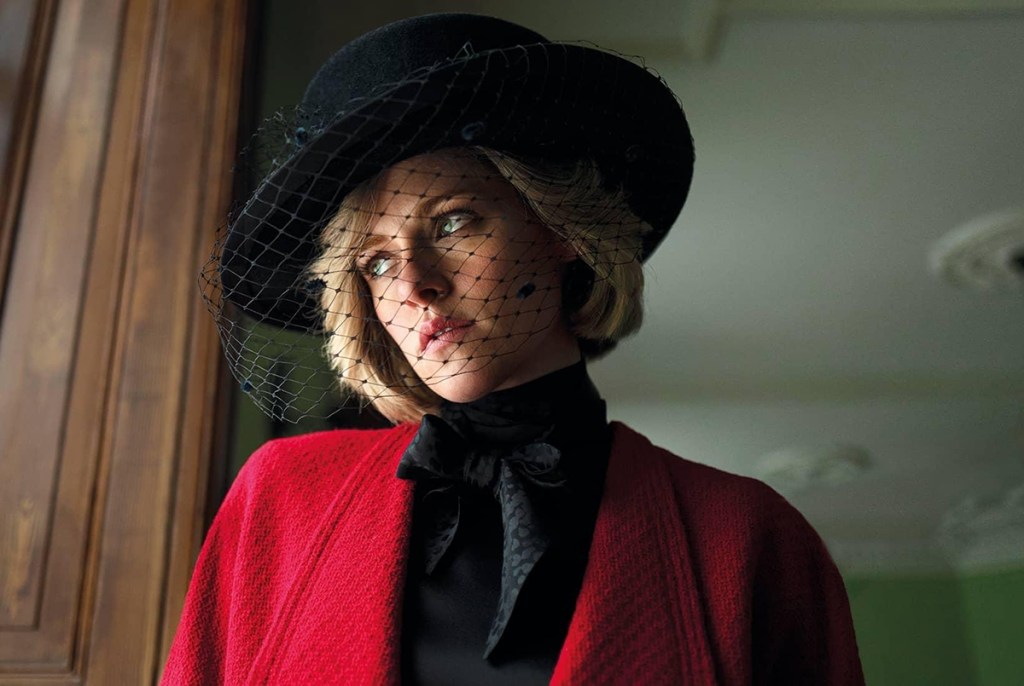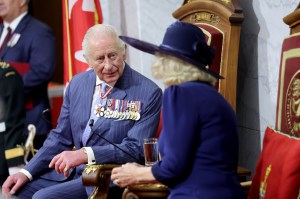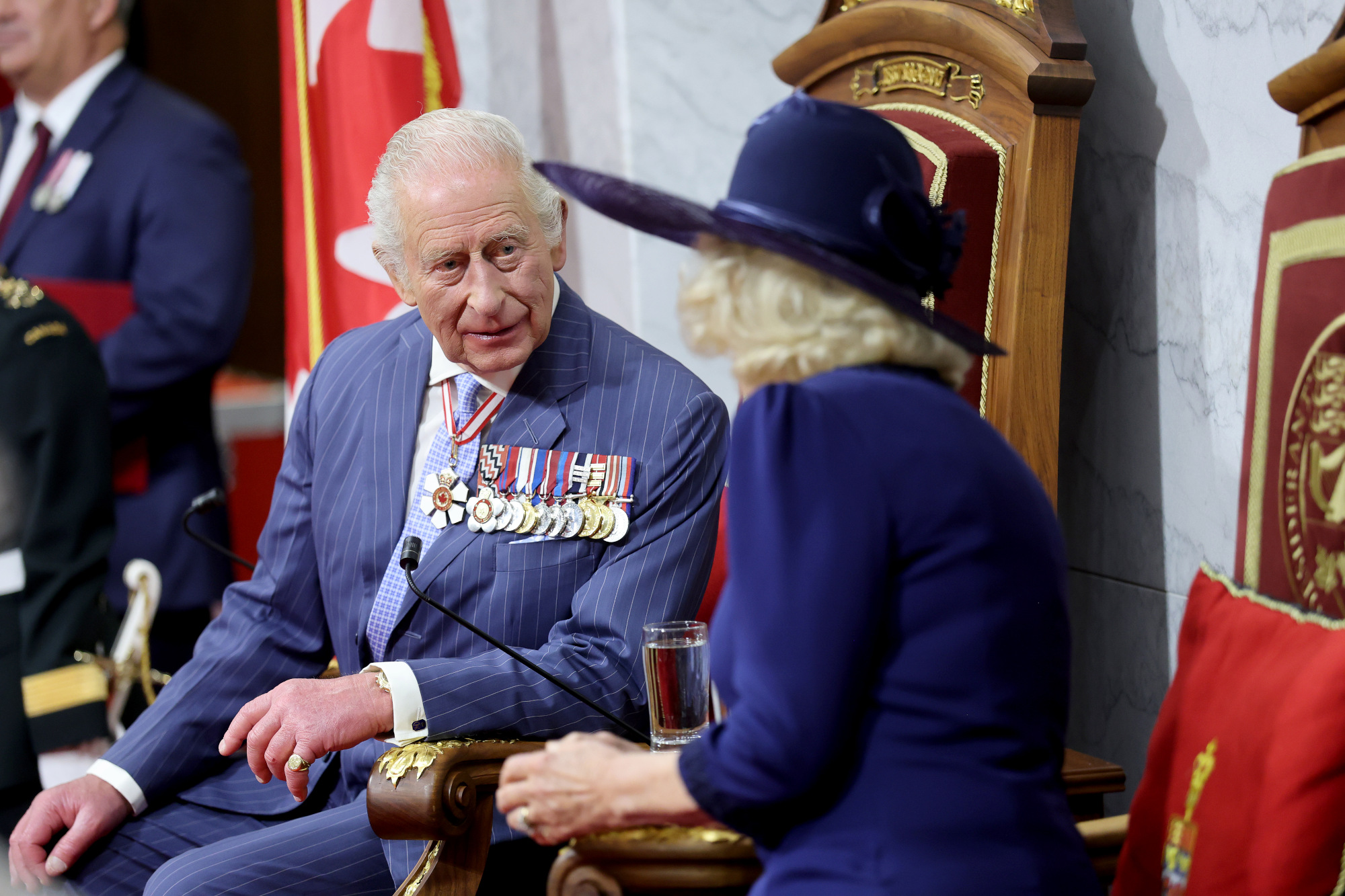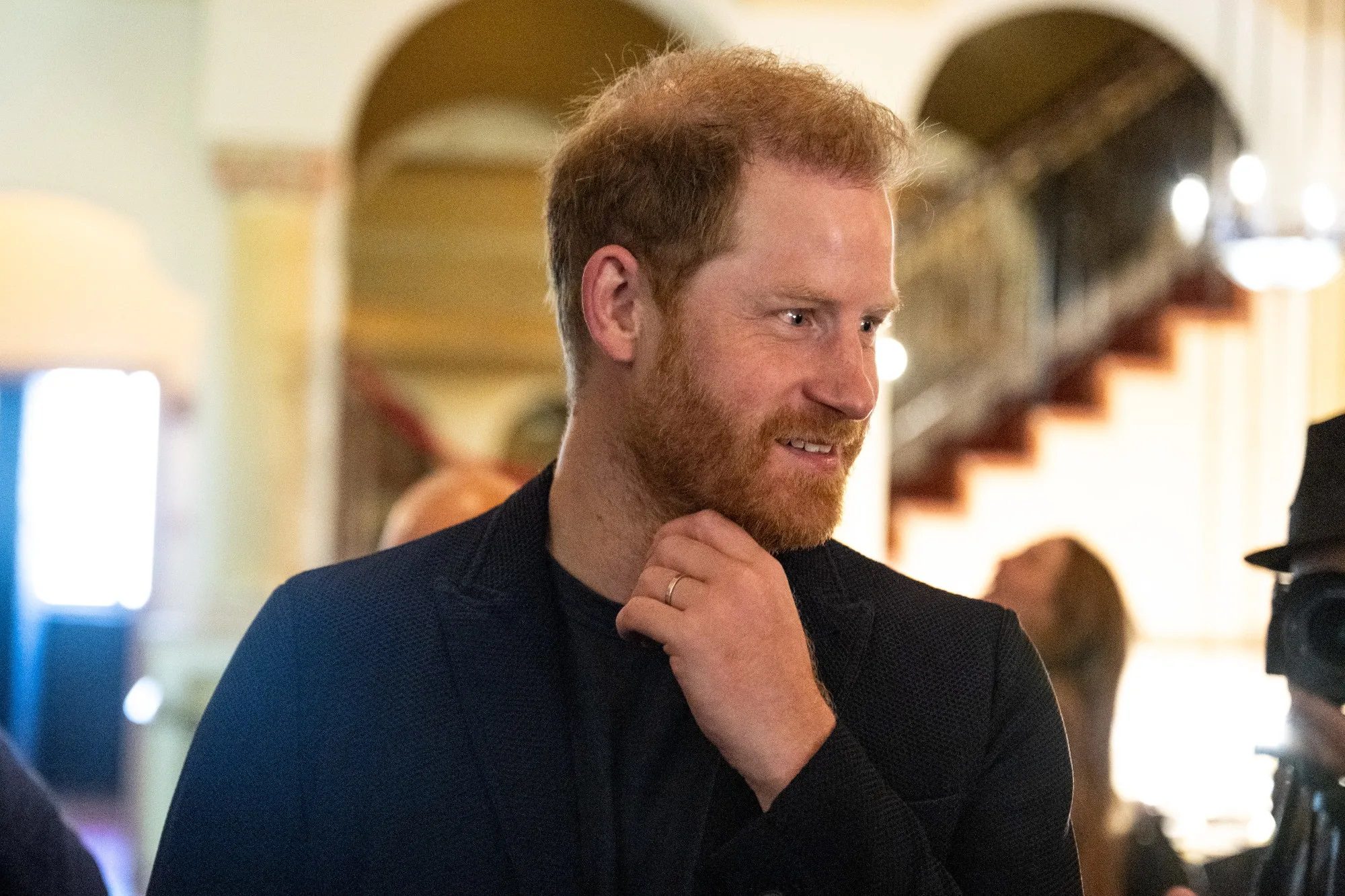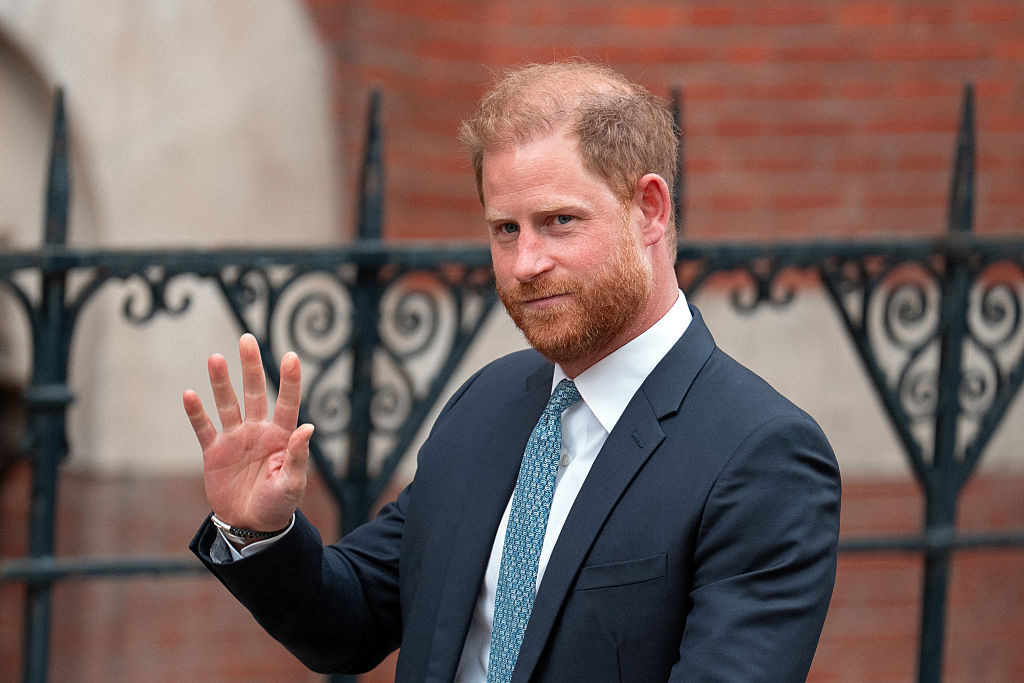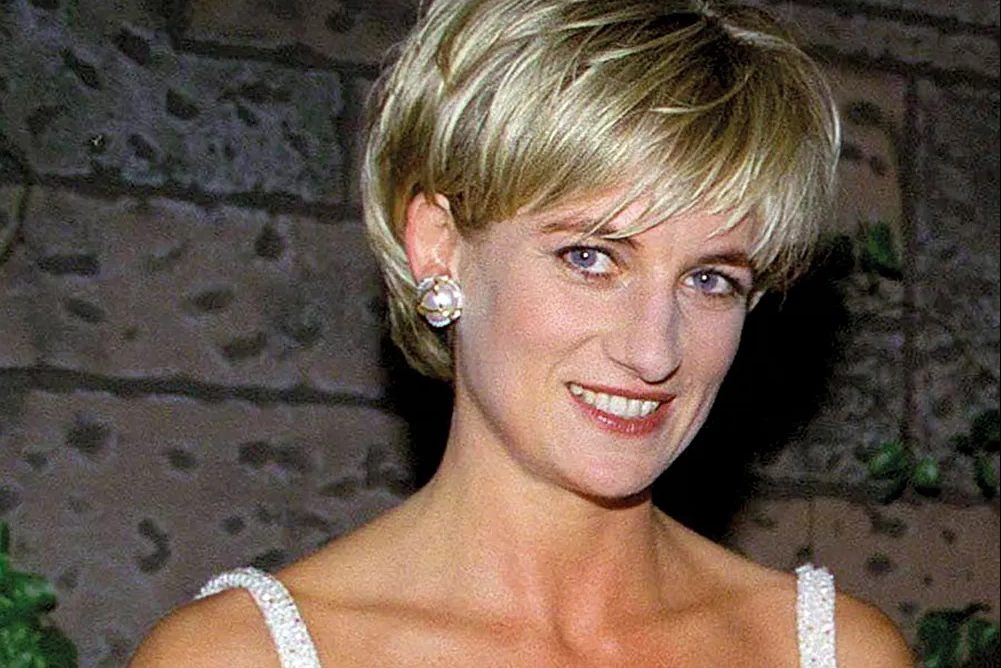It all looks ever so Sandringham. Formal evening garb, dining table the length of a cricket pitch, royalty nibbling in silence. As a tableau vivant it might be lit by Lichfield and styled by Hartnell. And yet something is awry. The beautiful princess feels stifled. She grabs at the tourniquet of pearls roped round her neck, whereupon it snaps. Huge gems plop into her gloopy green soup. Dauntlessly she dips a spoon in, feeds a pearl into her mouth and takes a pulverizing bite. This royal Christmas is not normal for Norfolk.
Spencer is the latest entertainment seeking to decrypt the myth of Diana, Princess of Wales. Its opening credits position it as “a fable from a true tragedy,” and the result is a pop horror genre flick — more Angela Carter than Barbara Cartland — whose critique of the Windsors makes Peter Morgan and Stephen Daldry look like cowering royalist lickspittles. When she arrives at Sandringham for three days and nights of psychological torture, Diana is forcibly weighed in the atrium, then issued with a strict rota of outfits to wear. Her maid and confidante, a sort of nice Mrs Danvers, is banished. Her curtains are stitched shut. The midnight flits, walk-in fridge raids and bulimic emissions are reported back to a poker-faced equerry on secondment from the Stasi. No wonder she starts seeing the ghost of Anne Boleyn.
The architect of this phantasmagoric vision is Pablo Larrain, who commissioned the script from Steven Peaky Blinders Knight. The Chilean director, thickly bearded and softly spoken, had never filmed in the UK before (and still hasn’t: Spencer, perhaps amusingly, was mainly shot in German castles). “I’m a republican,” he declares, “and I would probably be in a big deal of discomfort if I were living in a country that has a royal family. But I don’t feel that I am an outsider when it comes to Diana. I think her story is universal and the reason why she became a world pop icon is completely unrelated to England.”
Larrain, 45, came to international attention through an oblique trio of films documenting the crimes of Pinochet. Tony Manero (2008) and Post Mortem (2010) told of terror and death while No (2012) portrayed the upbeat advertising campaign which helped oust the regime via a referendum in 1988. Its Oscar nomination in the foreign-language category was, as for many filmmakers, the portal via which Larrain landed a gig in English. Jackie, which depicted the assassination and funeral of President Kennedy through the eyes of his widow, opened three years later. Natalie Portman was inundated with gongs and noms and the same hullaballoo inevitably awaits Kristen Stewart, who impersonates Diana in a state of high alert.
“I don’t think I would have made this movie if I hadn’t done Jackie first,” Larrain says. “Because it led me to relate to a woman that shaped the 20th century.” He cites those things they have in common: marriage into powerful families, complex relationships with the media, status as fashion icons, tragedy. I tell him I watched both films in one day. “Oh wow,” he says. “How was that?” What felt most striking was the sheer weight of stylistic consistency: in both he shoots a trapped woman storming angrily down a lushly carpeted corridor, or taking a cleansing but discreetly erotic shower. When I ask if such echoes are unconscious or even accidental, he leaps out of his seat.
“I don’t know if this is interesting for you,” he says, “but when a lens is a medium or long lens, it looks beautiful but it creates a distance. In both Jackie and Spencer — sorry I’m going to do this — the camera was here.” He spreads out his palm three inches from my face. “I’m not joking. It’s here. So the operator is here.” He places his face right behind his hand. “When you project that you feel that a famous icon performed by these cosmic actresses is so close to you in a way that is very private.”
This is his ambition: to be shrink, confessor, portraitist, but also illusionist. “If you look at Diana and anyone who has played her, no one really looks like her. Do you think Emma Corrin looks like her? She’s wonderful. I think she was able to create the right illusion. That’s what we do.” (Both actresses learned Diana’s Sloaney inflections from the same go-to dialect coach.)
The film, conceived long before Corrin made her entrance in The Crown, cannot quite avoid overlapping tropes. Diana is portrayed as royal prey, in this case not a deer but a pheasant which, she mournfully observes, is “beautiful but not very bright.” The difference, Larrain says, is “We are in her, we see the world through her eyes only. And that intimacy is just different from everything that’s been done, I believe, around Diana.” At one point she dismisses her stand-in maid by announcing she wishes to masturbate (pronouncing it poshly to rhyme with faster). This was Knight’s idea. “When I read it I laughed out loud, not only because I thought it was funny but it was so brave.”
Larrain has described his Pinochet films as an unintentional trilogy. Might he make a third film to follow on the high heels of Jackie and Spencer? “It’s a very bad idea to think about things that aren’t made. You don’t want to jinx it.” Rather than say yes, he solicits ideas. When I suggest a film called Markle he laughs. “That’s a good one. Interesting. I love her, I have such admiration for her.” It turns out he thinks I said Merkel.
Maybe Neruda (2016), a noirish caper about his celebrated compatriot, was the other title in his celebrity trilogy. Other work has found him slaloming among the genres. The Club (2015) was a typically indirect film about abuses in Chile’s Catholic church. Ema, a lurid drama about adoption that contains a side order of interpretive dance, was launched online this year, as was Lisey’s Story for Apple TV+. The latter was met with shrugs and yawns. Unusually for Larrain, who does plenty of producing with a company co-run by his brother, it wasn’t his idea. “I was invited,” he says. “I love Julianne [Moore] and everyone was very nice and I had the chance to work with Stephen King.” For his next project, about anti-Muslim terror post-9/11, he’s adapting the source material himself.
The pandemic lengthened the period allowed for research into Diana. “And after a couple of years I realized I knew nothing. The more I investigated the more mysterious I found her.” Only when shooting the scenes featuring her conflicted sons did he understand this was a film about motherhood. He even purports to have made Spencer as a gift to his Diana-worshipping mother. She was puzzled by the coverage of its première in Venice.
“She reads the reviews and she says, ‘Son, why are people saying there is a ghost in the movie? What are you doing with Diana?’ And I went, ‘You’ve been cutting your hair like her for 40 years, you’ve been dressing like her for 40 years. That is the ghost.”’
Hers is not the only verdict he awaits. I’ve asked my last question when, with a hint of anxiety, he asks one himself: “What do you think the English people will say?”
Spencer opens in cinemas on November 5. This article was originally published in The Spectator’s UK magazine. Subscribe to the World edition here.



